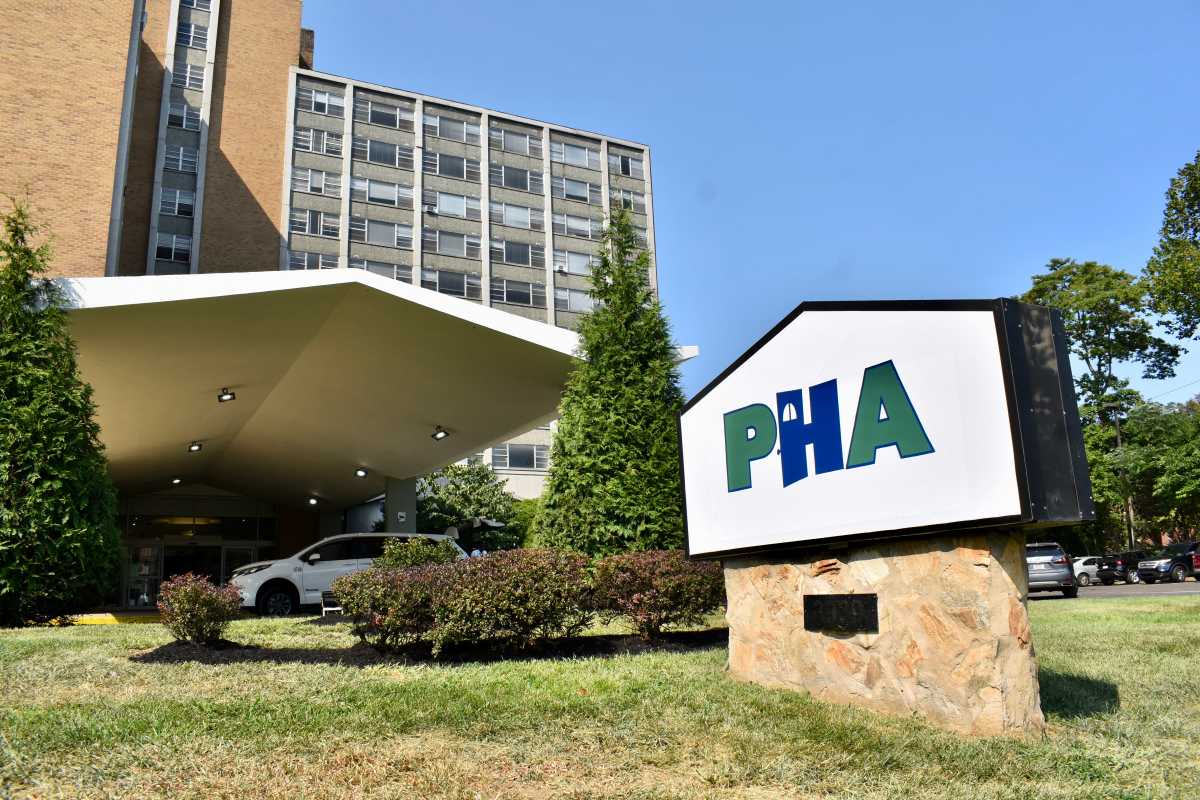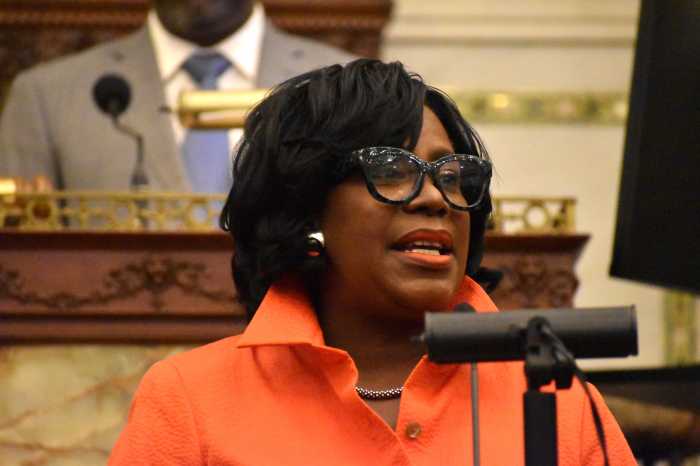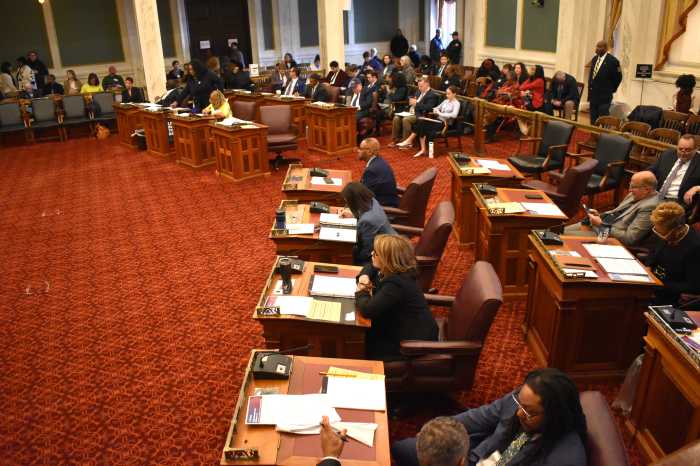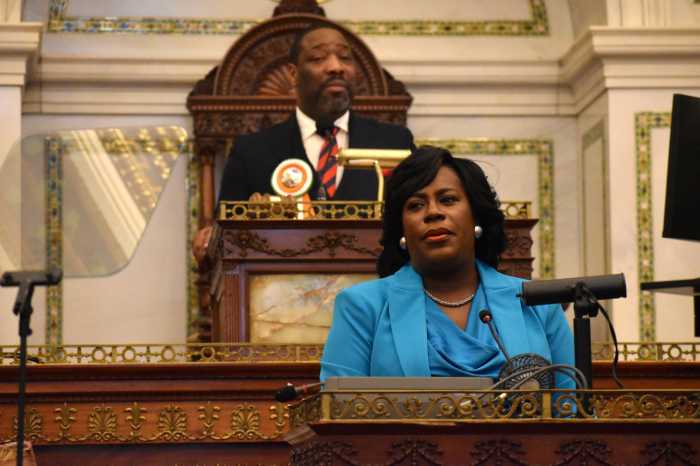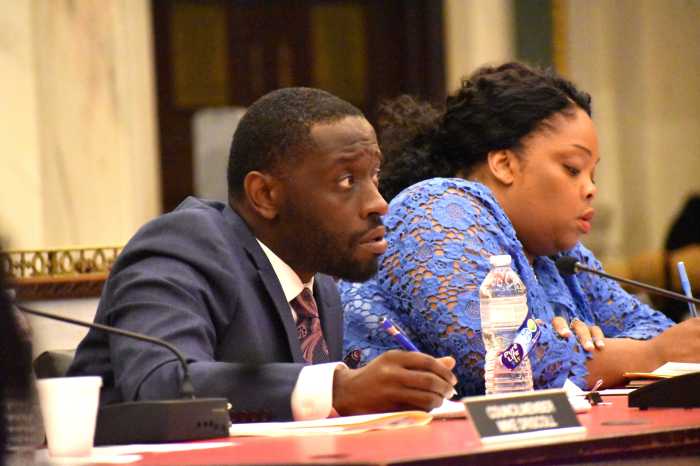A Philadelphia Housing Authority sign has already been installed outside Brith Sholom House, the hulking 12-story building with nearly 360 units of affordable housing for seniors in Wynnefield Heights.
PHA, in recent days, has taken over the complex, as part a $24 million court-approved agreement that came at the behest of residents fed up with the negligence of the property’s former owner. Brith Sholom had racked up hundreds of code violations and, prior to the deal, had been at risk of having its utilities shut off and going to sheriff’s sale.
“This is a good day,” PHA board chair Lynette Brown-Sow told a group of residents, legal advocates and elected officials gathered Wednesday afternoon in Brith Sholom’s auditorium.
Tenants had pushed for housing authority and city help, attending rallies, court hearings and City Council and PHA board meetings. Some had left; only about 100 seniors remain in the building, which is located off City Avenue.
Previous ownership, associated with the Puretz family, neglected basic repairs and upkeep of the building, constructed in 1955, and PHA CEO Kelvin Jeremiah said residents also dealt with squatters, security issues and “hundreds of thousands of dollars” in unpaid utility bills.
Marguerite Byrd, who relocated to Brith Sholom 11 years ago, remembers believing then that she had found “apartment heaven.”
“I thought that I had found the best place in Philadelphia to live, and I was going to live here forever,” Byrd said. “But the last two years have been awful.”
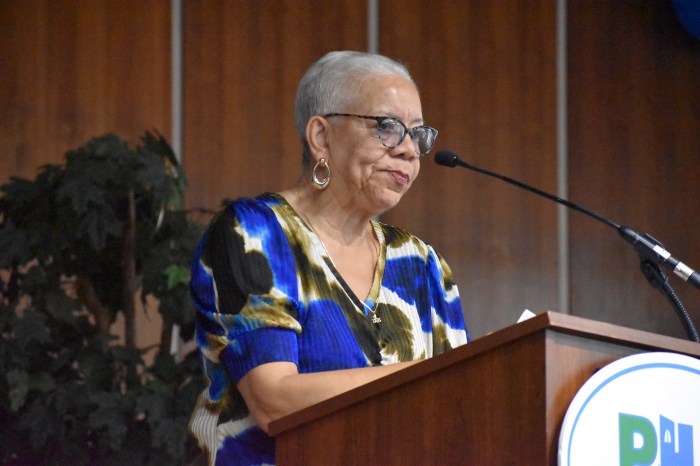
She recalled heating water on the stovetop to bathe when there was no hot water, and going for periods without heat, among a myriad of other issues. Byrd also said she and others experienced retaliation from property managers for speaking out about the conditions.
The New Jersey-based Puertz family and their associated firms have been accused of buying up affordable housing complexes across the country to extract value, while providing as little as possible for their tenants.
One member of the family – Aron Puertz, 53 – pleaded guilty to wire fraud in federal court in June after authorities said he provided fraudulent documents to take out loans for three properties in Illinois, Arkansas and Michigan.
“Make no mistake, the problems here were caused by the intentional neglect by the owners who extracted every cent of the equity that they could out of this building without an ounce of care or thought for the lives that were being impacted,” Mayor Cherelle Parker said at Wednesday’s news conference.
Brith Sholom was placed into receivership as part of foreclosure proceedings brought by the holder of the mortgage, New World Commercial Credit. The lender and PHA reached a sale agreement that a judge approved last month.
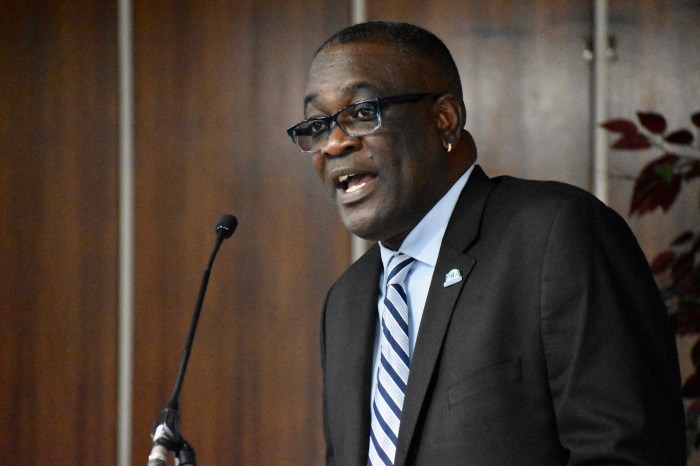
The $24 million – federal dollars from the U.S. Department of Housing and Urban Development – will be distributed to creditors, including Philadelphia Gas Works, PECO and the Philadelphia Water Department. All three utilities agreed to accept significantly less than they were owed to facilitate the transaction. No money is permitted go to the prior ownership group, according to court documents.
The Parker administration committed $8 million to PHA for repairs and renovations at the property. Parker noted the Brith Sholom deal is in line with her goal of creating or preserving 30,000 units of affordable housing during her first term.
Housing authority officials said they immediately hired a security guard to work 24/7 and that a property manager is also now on-site during weekday business hours. Tenants can call PHA’s maintenance line to report issues.
Over the coming months, PHA will assess the building, work to bring it up to city code and embark on an extensive rehabilitation, Jeremiah said. There is currently no timeline for construction.
Due to the hazardous conditions, PHA is waiving September and October rent payments for Brith Sholom residents, he added.
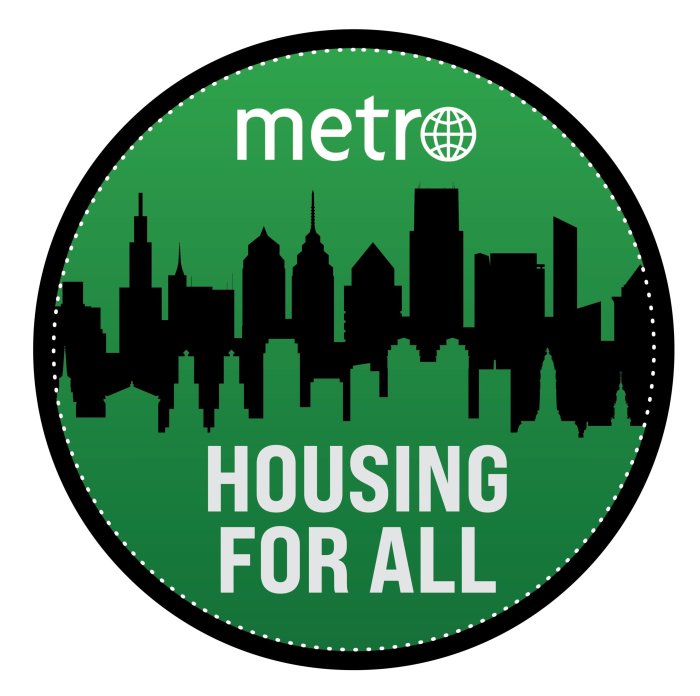
‘Housing For All’ is a two-year project in which Metro Philadelphia will investigate the city’s affordable housing crisis. It is made possible by The Lenfest Institute for Journalism’s Philadelphia Local News Sustainability Initiative grant.



